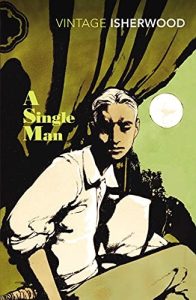
Writtten by: Slawka Grabowska
A Single Man, Christopher Isherwood
London: Vintage 2010
152 pages
ISBN 9780099541288
“The first truly liberated gay novel in English”. That’s how a novelist and essayist, Edmund White described Christopher Isherwood’s A Single Man published in 1964. The vivid, frank, moving and empathetic description of the life of a homosexual in his fifties caused a sensation, and its author is considered a forerunner of gay fiction in America. The book is a true delight for its style and the way it reflects the oppression of homosexuals in the 1960s in the US. Only a masterpiece can in so few pages touch on such important topics as mourning, death, aging.
George Falconer, a middle-aged English teacher, is adjusting to living alone after the sudden death of his partner in a car accident. Determined to continue with the routines, he tries to lead a life as before: he teaches classes on Aldous Huxley, drinks too much, is agitated by seeing a young tennis player, and is excited about a date with one of his students. But under this facade he hides the pain of not being able to openly live neither his emotional life nor his mourning.
It’s worth noting the scene from one of George’s classes: the teacher talks to his students about After Many a Summer, Dies the Swan by Aldous Huxley only to realize that he was carried away by passion, that they do not follow him and he feels ashamed for it. It’s one of the most elaborate scenes in the book.
Donostia Book Club has read and discussed the book on February 13th. In case you would like to read it too, below we leave some questions for you. Also, you can compare the book with its cinematic adaptation starring Colin Firth and directed by Tom Ford.
- What does this novel tell us about the way gay people were treated
at the time?
- Isherwood called his novel A Single Man. We know that George has
lost his partner, Jim, in a car accident. But is that the only way in
which George is “single”? How else does the title apply to the
character?
- The novel presents a day in the life of George. There are some famous
examples of novels like this — James Joyce’s Ulysses and Virginia
Woolf’s Mrs. Dalloway. One common interpretation of this type of
novel is that the main character is meant to be an Everyman
(or Everywoman)
that all readers identify with. In what ways can you identify with
George?
In what ways is this story one of everyday people, not just George,
but Jim, Doris, Charlotte, etc.?
- How does this novel differ in its handling of George’s sexuality
from other books that you’ve read? What do you think about the
way the movie handles George’s sexuality? What surprises you
about George as a gay man in the 1960s?
|

